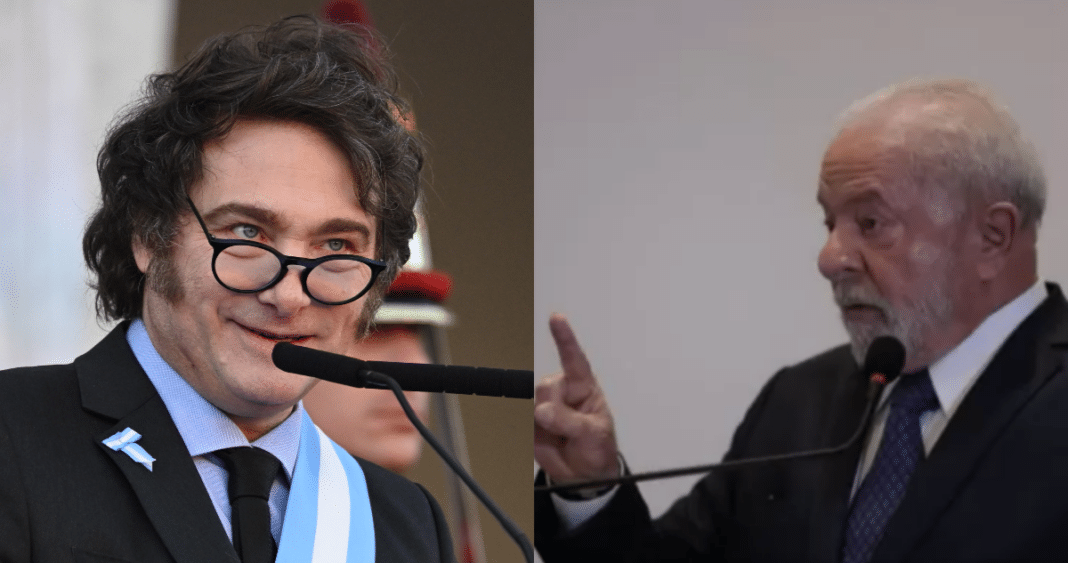Milei Unleashes Scathing Critique: Lula Branded as ‘Corrupt Communist Dinosaur’
Milei Refuses to Back Down, Doubles Down on Accusations Against Lula
In a scathing attack, Argentine President Javier Milei has once again taken aim at his Brazilian counterpart, Luiz Inácio Lula da Silva, labeling him a corrupt communist dinosaur
. The war of words between the two leaders shows no signs of abating, as Milei refuses to apologize and instead doubles down on his controversial claims.
Milei Defends His Stance on the Bolivian ‘Coup’ Attempt
Milei’s latest tirade comes after he was criticized for calling the attempted coup in Bolivia a ‘fraud’. In a series of posts on the social media platform X, the Argentine president lashed out at his detractors, accusing them of being the perfect idiotic dinosaur
for not accepting the alleged fraud in Bolivia.
Milei Stands Firm, Calls Lula ‘Corrupt’ and ‘Communist’
Milei has also refused to apologize to Lula, as the Brazilian leader had demanded. Instead, the Argentine president doubled down on his accusations, stating that Lula is corrupt
and communist
. Milei cited Lula’s previous imprisonment for corruption and his communist leanings as justification for his scathing remarks.
Milei Skips Mercosur Summit, Opts for Conservative Conference in Brazil
In the aftermath of the diplomatic tensions, Milei has announced that he will not attend the upcoming Mercosur summit in Asunción, where Lula and Bolivian President Luis Arce were expected to be present. Instead, the Argentine leader will travel to the Brazilian city of Camboriú to attend the Conservative Policy Action Conference, where he plans to meet with former Brazilian President Jair Bolsonaro, Lula’s main political rival.
Conclusion: Escalating Tensions Between Milei and Lula
The ongoing feud between Milei and Lula shows no signs of abating, as the two leaders continue to trade barbs and accusations. Milei’s unapologetic stance and his refusal to back down from his controversial claims have only served to further inflame the diplomatic tensions between Argentina and Brazil. As the political landscape in the region continues to evolve, the war of words between these two leaders is likely to remain a prominent feature of the regional political discourse.




